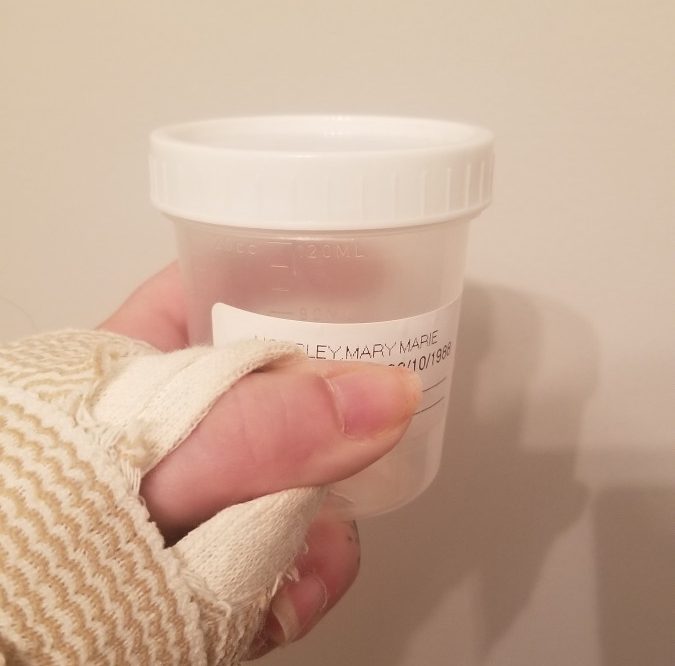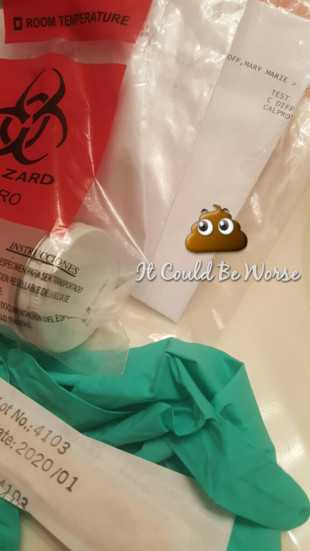Testing of stool, or feces, can be helpful when monitoring disease activity in Crohn’s disease and IBD. These tests can indicate if inflammation or internal bleeding is present and assist your healthcare team with disease management and treatment decisions.

Doctors will typically order blood and stool sample testing before deciding to book invasive procedures such as capsule and upper endoscopies and colonoscopies.
Your healthcare provider will order one of two types of stool tests: fecal occult blood and fecal calprotectin.
You will be given a container, gloves, and a “hat” to enable you to collect a sample at home. When collected, samples are usually returned to your doctor’s clinic before being sent to a laboratory for testing.
When you’re collecting your sample, avoid touching the inside of the container or blowing air into it, as this can add bacteria to the sample and cause false results.

The fecal occult blood test
A sample for a fecal occult blood test is taken on a single day or over multiple days, depending on your doctor’s request. Occult blood exists in tiny amounts that are detected by chemicals used in this test. Positive results indicate the presence of occult blood, but not the location of the bleeding.
If the test is positive, a colonoscopy is usually recommended. If you experience visible rectal bleeding, inform your healthcare team.
The fecal calprotectin test
Fecal calprotectin tests are useful when diagnosing and monitoring inflammation in IBD and Crohn’s disease. High levels of this protein can suggest an IBD diagnosis. When used in disease management, a positive test result can indicate a flare.
It is important to note that no test is 100 percent accurate. No single test, whether blood, imaging, or stool, can diagnose IBD, but each test may be used to assist in the diagnostic process.
If you’ve ever wondered whether you should contact your doctor, do it. It is better to ask for advice or seek reassurance from your doctor than suffer alone.
Each person’s disease is unique to them, and not everyone has the same manifestations or symptoms. My experiences may be different than yours, but you can never be too prepared. For me, it could be worse.
***
Note: IBD News Today is strictly a news and information website about the disease. It does not provide medical advice, diagnosis, or treatment. This content is not intended to be a substitute for professional medical advice, diagnosis, or treatment. Always seek the advice of your physician or other qualified health providers with any questions you may have regarding a medical condition. Never disregard professional medical advice or delay in seeking it because of something you have read on this website. The opinions expressed in this column are not those of IBD News Today or its parent company, BioNews Services, and are intended to spark discussion about issues pertaining to inflammatory bowel disease.


Fantastic.
I have issue with hemorrhoids. Will this affect the stool test if with the blood involved. I think I have blood in my stools separate from hemorrhoids
From what I’ve looked up, it can. I believe any blood found can come up positive, regardless of source. – Results may be false positive if the source of bleeding is not an adenoma or a malignant disease (diverticulitis, hemorrhoids, and anticoagulant therapy). – https://gut.bmj.com/content/49/3/402
Now, I’d have to ask my own GI, but this is the only information I could find with a Google search.